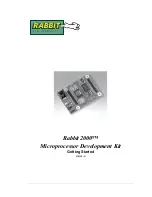
R01UH0823EJ0100 Rev.1.00
Page 248 of 1823
Jul 31, 2019
RX23W Group
11. Low Power Consumption
11.7
Usage Notes
11.7.1
I/O Port States
I/O port states are retained in software standby mode. Therefore, the supply current is not reduced if output signals are
high level.
11.7.2
Module Stop State of DMAC and DTC
Before setting the MSTPCRA.MSTPA28 bit to 1, set the DMAST.DMST bit of the DMAC and the DTCST.DTCST bit
of the DTC to 0 to avoid activating the DMAC and DTC.
For details, refer to
section 18, DMA Controller (DMACA)
section 19, Data Transfer Controller (DTCa)
11.7.3
On-Chip Peripheral Module Interrupts
Interrupts do not operate in the module stop state. Therefore, if the module stop state is made after an interrupt request is
generated, a CPU interrupt source or a DTC startup source cannot be cleared. For this reason, disable interrupts before
entering the module stop state.
11.7.4
Write Access to MSTPCRA, MSTPCRB, MSTPCRC, and MSTPCRD
Write accesses to MSTPCRA, MSTPCRB, MSTPCRC, and MSTPCRD should be made only by the CPU.
11.7.5
Timing of WAIT Instructions
The WAIT instruction is executed before completion of the preceding register write. The WAIT instruction being
executed before the register setting is modified may cause unintended operation. To avoid this, always execute the WAIT
instruction after confirming that the last register setting is done.
11.7.6
Rewrite the Register by DMAC and DTC in Sleep Mode
The WDT stops in sleep mode. Do not set up the DMAC and DTC to rewrite any registers related to the WDT while the
chip is in sleep mode.
Depending on the settings of the OFS0.IWDTSLCSTP bit and IWDTCSTPR.SLCSTP bit, the IWDT may also stop in
sleep mode. To avoid this, do not set up the DMAC and DTC to rewrite any registers related to the IWDT in sleep mode.
The RSTCKCR register is a register that switches the clock source at exit from sleep mode. Changing the RSTCKCR
register in sleep mode causes unintended operation, so do not write to this register in sleep mode.
















































